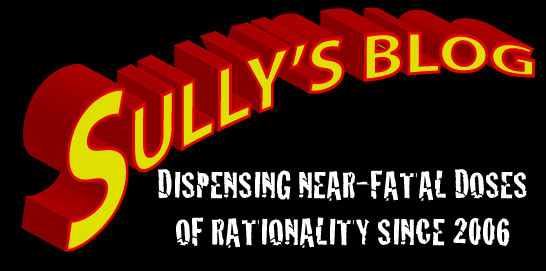A 'skeptic', in the sense that the online community around it intends, refers to a person who arrives at their beliefs and conclusions via the scientific method. Listen to any of the myriad podcasts, or browse the countless blogs and you'll see again and again that the skeptical community will not tell you what to think, but how to think (and not in the scary, cultish way). [Primateus advises you to be be wary of self-proclaimed skeptics]
I discovered the skeptical community in April 2008, by way of Richard Dawkins - his website linked to a interview on the Skepticality podcast discussing a creationist PR debacle. I kept listening to the show after the interview ended, and have been listening ever since, emboldened to by the knowledge that a quasi-organised community of freethinkers were sinking their teeth into much more than just endorsing a humanist agenda.
However, before I had developed a robust framework for evaluating claims, I was a bit of a jackass. Still sceptical, and sometimes right, but often for the wrong reasons.
I've always enjoyed being a pot-stirrer, and I learned early on that subjecting religion to criticism and exposing its logical fallacies is a surefire way to upset most of the population. Religion was my favorite class as a young 'un, because it was an introduction to rhetoric, and the grown-ups would get flustered when presented with questions that undermined any of its framework.
I recall not being terribly interested in rituals as a child - and I can vividly recall that I spent my confirmation mass muttering to the classmate next to me about how disgusting it was to have to pray about 'not being worthy', and other statements my narcissism couldn't reconcile. Rather than just conclude that all religion was a pile of nonsense, I spent the next few years wasting brain power by living through a different religious prism (albeit hugely watered down). I'd precociously chide my friends about 'bad karma', and catalogue their past transgressions as evidence of why the universe was being mean to them lately. Similarly, I'd attribute good fortune to acts of kindness. Even though I presented it to my friends as a thought experiment, my efforts were motivated by a desire to make them doubt their own beliefs, and not to push towards a more valuable set of humanist beliefs.
Similarly, and most shamefully, when the twin towers fell, I peddled the worst information I could get my (fifteen-year old) hands on. One example is the e-mail forwards that told users that the flight number (or plane number, in varying stories) of the vessel that first struck the Word Trade Center was Q33-NY, then implored readers to view those characters in the Wingdings font, which revealed the following:
Spooky coincidence, or proof of Microsoft's involvement? It wasn't until a schoolmate showed up to class with the same printout that I bothered to actually investigate the claim so that I could expose his blind belief as the gullibility it was. [Snopes link for the curious]
My next 9/11 related nonsense was fuelled in part by the 'documentary' Zeitgeist. Split into three acts, the first was a takedown of Christianity by highlighting its many plagiarisms from older belief systems, the second examined the possibility that the Bush Administration orchestrated the attacks, and the third went off the deep end in conspiracy nonsense about one-world governments that would only titillate those with extensive tinfoil collections.
Since I was more interested in seeing people react to uncomfortable information rather than propagating good information, I mined whatever probable 'factoids' I could from the video and similar sources and presented them to my friends, not necessarily as my beliefs, but as 'compelling' information.
So why have I shared these disparate examples of my peddling of nonsense? As much as I feel as it's repentance, I hope it will serve to illustrate that there are intelligent people out there who will be excited by information that purports to be clandestine, or contradicts the boring reality, even if it's out of sheer boredom.
 If you find yourself in a conversation with someone who is defending the indefensible, take a step back. Ask them if they really believe what they're saying, because some conversations aren't worth having. A friend of mine once got quite worked up trying to refute the infinite monkey theorem. We're talking a good fifteen minutes of flushed red cheeks. Arguing against infinity. That's pretty intense. Try to keep your mental masturbation in check when you're in public.
If you find yourself in a conversation with someone who is defending the indefensible, take a step back. Ask them if they really believe what they're saying, because some conversations aren't worth having. A friend of mine once got quite worked up trying to refute the infinite monkey theorem. We're talking a good fifteen minutes of flushed red cheeks. Arguing against infinity. That's pretty intense. Try to keep your mental masturbation in check when you're in public.Getting people to stop engaging in harmful practices motivated by stupid beliefs that impair the human race's progress is a Sisyphean task, but it's one that intelligent, free-thinking people can and should rally behind, particularly if they know that their one voice is part of a worldwide chorus. Those who get in your way with naive notions may be your future allies who just haven't perfected their critical thinking skills yet, so help them along. Rabid allegiance to established beliefs safeguarded by emotional arguments and illogical rhetoric is the ultimate enemy, and open, intellectually-honest debate is the goal.
Gosh, my brain lights up with implausibly utopian notions every time I consider such a thing!







1 comment:
I remember that infinite monkey debacle. Pretty funny stuff.
Post a Comment